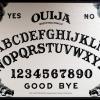I'm not a doctor, but I've always heard the way to avoid reactive hypoglycemia is to avoid spiking high blood sugars that cause excess insulin release.
I believe the metabolic state you describe occurs when a spike in blood sugar creates a substantial release of insulin. When the insulin lasts longer than the blood sugar does, it creates a crash/crump situation.
Frequent small meals of low glycemic index foods (avoid sugars and simple carbs) should reduce insulin spikes/production, allowing blood sugar to stabilize.
Hope this helps.
yes it's exactly that, my insulin is overreactive and on long term this can cause diabetes.
I will try low glycemic foods but it will make insulin more sensitive no?
will I have to do that for the rest of my life or this is reversible?
I struggle with reactive hypoglycemia.
It has gotten somewhat better. I personally feel alot of folks with hypoglycemia issues likely have an underlying thyroid issue specifically hypothyroid. We know there is some kind of connection between mental health substances and thyroid, substances like lithium appear to slow the thyroid down. Inositol likely exerts a mental health influence.
Try ashwaghanda see if that helps also make sure your getting enough iodine, selenium, and zinc.
For myself I find if I say eat pizza on a sunday night the entire next day I do not get hypoglycemia. What likely happens is the higher calories and carbs from the pizza boosts my metabolism and thyroid and thats why the next day I feel no hypoglycemia. But then when I return to my more strict diet my metabolism slows.
I am having some improvement with ashwaghanda, I also will be starting thyroid glandular soon and may try forskolin as well.
Why did you use the inositol to begin with? If your like me you tried it for mental benefits, I am not starting to believe most of my mental issues like anxiety may come from a slow thyroid rather then needing more traditional compounds or drugs.
I know that my thyroid levels went down over a year, I think it happened because I changed my lifestyle.
I tried taking a strong multivitamin with lots of nutrients including those three and it didn't change much, I think you have results with ashwagandha because it lowers blood sugar and avoid spike but my problem is that I used inositol (which lower blood sugar) then withdrew cold turkey (and this made blood sugar go up excessively), both inositol and ashwagandha will give the same results but I don't want to take supplements.
I started inositol because people see a lot of improvement with choline.
I noticed some things :
- I eat => 1 hour later I feel fine, 2 hours later strong shakiness begins
- I don't eat => I feel fine during several hours with minor shakiness sometimes but it's bearable
- I eat then immediatly I exercise 20-40mins, I feel fine all the time
problem is that I can't always exercise after eating.
I will try this :
- eat low hypoglycemic food and see what it does, I will cut on soda, french fries very glycemic stuff
I have two questions however :
- if you take something with 20 glycemic index and another thing with 30 glycemic index, does this make your intake equal to 50?
- is non-congenital reactive hypoglycemia reversible in an healthy individual?




















































